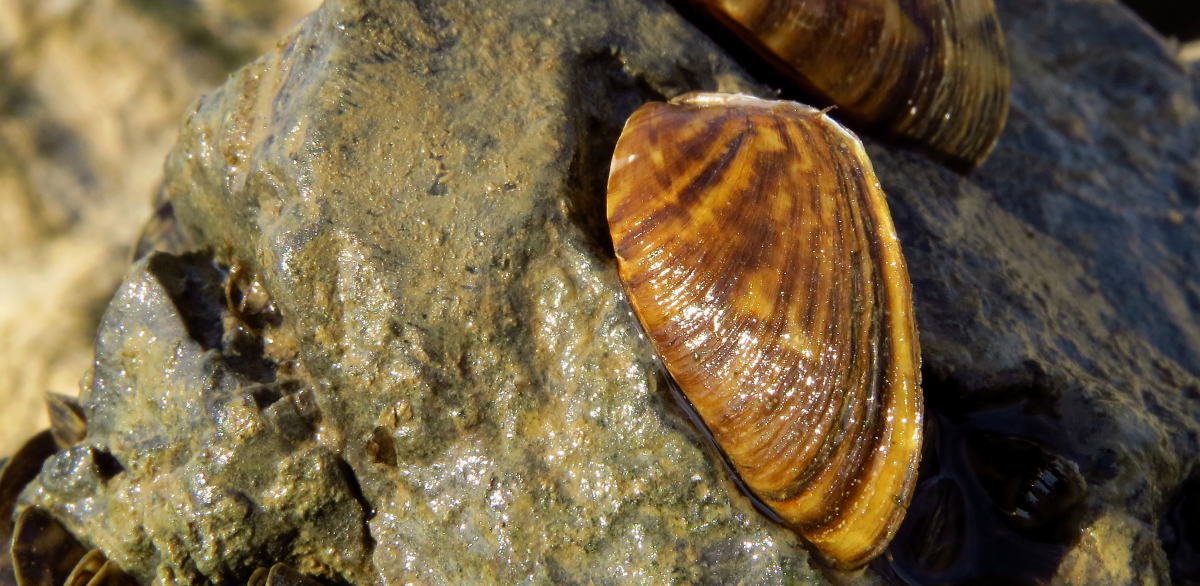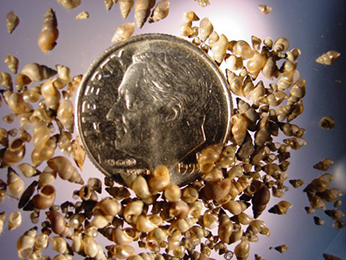Zebra Mussels

Zebra Mussels are an invasive mollusks species that pose a serious threat to native fish, property, and local water treatment plants. It has the ability to adapt to a wide range of conditions and significantly alter the ecosystem in any water body it inhabits. Although there is not threat to the quality of drinking water, Zebra Mussels can cause up to billions of dollars in damage. Currently Oklahoma has over 20 lakes that have become infested. Zebra Mussels travel through waterways such as lakes and streams but they also attach themselves to water vessels and equipment. Being so small (adults can group up to only 2 inches) the nearly invisible larvae can attach themselves to boats and be transported from water body to water body. The increase in migration (USGS Animated Migration Map)

Photo Courtesy of California Department of Water Resources
ECONOMIC IMPACT
Cost and management are the hugest impacts for economic costs. Because zebra mussels prefer hard surfaces at moderate to high water depths, intake and equipment structures are susceptible to becoming clogged and degradation.
ENVIRONMENTAL IMPACT
Zebra mussels are filter feeders meaning they can bioaccumulate harmful elements such as polychloinated biphenyls, polycylic armatic hydrocarbons, and heavy metals. Because they are excellent filter feeders, they filter out microscopic organisms leaving less food for fish and other aquatic species. They, also, outcompete with native mussels for food and habitat.
PREVENTION
Learn what these organisms look like and report a suspected infestation to your lake manager. Follow these guidelines to ensure you boat does not aid in spreading this invasive species:
Inspect
Look over vessels and equipment (hull, drive unit, trim, axles, anchor, trailer, etc.) for any signs of mussels. If any mussels or debris are discovered, scrape off and discard.
Drain
Drain the livewell, bilge pump, motor, transom wells, and any excess water from the boat while on land.
Rinse
Thoroughly rinse and dry in the sun (preferably 5 days) before boating again.

